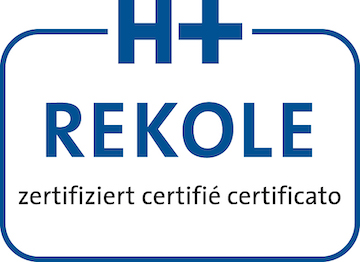Slowing down Parkinson symptoms with continuous therapy
Continuous support & therapy from neurological specialists is crucial for Parkinson patients.
The diagnosis of Parkinson’s disease is a drastic experience for the person affected. Patients and family members are often faced with a lot of challenges. In order to positively influence the course of the disease, it is crucial that you have access to a neurologist specialized on the treatment of Parkinson’s disease. A continuous and holistic treatment including medication, movement therapy as well as cognitive and speech training is key to slowing down the progression of symptoms.

TREATMENT OPTIONS
The earlier Parkinson is diagnosed, the better. With early treatment, the onset of severe symptoms can be delayed for years. The disease has very individual courses, thus there is no standardized treatment. Therefore, after the diagnosis of Parkinson it is crucial to have access to a neurologist specialized on the disease to get a tailor-made and continuous treatment, therapeutic support and the right medication.

At cereneo we offer a holistic and seamless treatment starting with diagnosis and a detailed assessment followed by a recommendation of possible treatment pathways that fit to a patient’s specific needs. These pathways vary depending on the stage of the disease and can include clinical interventions with leading Parkinson experts from University Hospital Zurich (e.g. DBS, FUS), inpatient rehabilitation in one of your clinics, rehabilitation at home and long-term online rehabilitation and support from our cereneo Home therapists.
Stage 1 & 2
Diagnosis Parkinson
- Profound second opinion of a Parkinson specialist
- Detailed assessments of cognitive & physical abilities
- Validation of diagnosis
- Treatment plan recommendation including medication, rehabilitation measures, nutrition
Stage 3 & 4
Further treatment options
- Detailed re-assessment of disease progression including correct dosage of medication
- Evaluation of further treatment options in collaboration with University Hospital Zurich (USZ): FUS (Focused Ultrasound) and DBS (Deep Brain Stimulation)
- Exploration of further innovative treatments & therapies
Stage 5
Specialized rehabilitation
- DBS fine tuning
- Inpatient rehabilitation with focused therapies using robotics
- Special cognitive and speech training
- Further finetuning of nutrion
- Continuous online support & therapy
- Annual inpatient refresher/ check-up to adjust therapy, DBS settings and medication

Seamless & dedicated case management throughout your patient journey with
constant access to experienced Parkinson experts and continuous information exchange.

PARKINSON SYMPTOMS
Typical physical symptoms of PD include:
- tremor (resting tremor),
- muscle stiffness (rigor),
- slowed movements with small steps,
- reduced swinging of the arms (in many cases one-sided),
- typical facial masking with little to no facial emotional expression.
Usually changes or impairments of non-motor functions occur much earlier and should alarm relatives.
Typical non-motor symptoms can be:
- talking in sleep or sleepwalking,
- incontinence,
- depression,
- anxiety,
- pain,
- dizziness,
- loss of smell.
Next to the typical symptoms, Parkinson is often accompanied by sleep problems, constipation, bladder problems and problems with swallowing and chewing. Thus, eating and a healthy diet can become a very challenging and tiring task for Parkinson patients, which can lead to malnutrition.

CAUSES & RISK FACTORS
Little is known about the causes, but it is the result of a declining dopamine production. Dopamine is a neurotransmitter produced by the body used by the nervous system to send messages between nerve cells. Too much or too little of it can lead to a vast range of health issues.
It is one the most common neurodegenerative diseases. Around 10 million people worldwide are affected by PD.
Men are affected more often than women and the disease typically manifests between the age of 50 and 60.
Parkinson disease has a severe impact on your and your family’s life and affects one or several brain functions, such as speech, movement or cognitive abilities.
Whereas a stroke has an immediate severe impact, PD tends to occur more gradually.

We accompany you on your entire recovery journey
No matter where you are in your recovery process, we are can support you to maximise your health.

A fully personalized therapy programme based on your needs and wishes in one of your clinics.

Assessment of your home environment and safe transition back to anywhere in the world.

Together with a cereneo therapist you start your rehabilitation at home and integrate it in your daily routine.

Continue your rehabilitation at home via online channels and stay connected to the clinical expertise and network of cereneo.

